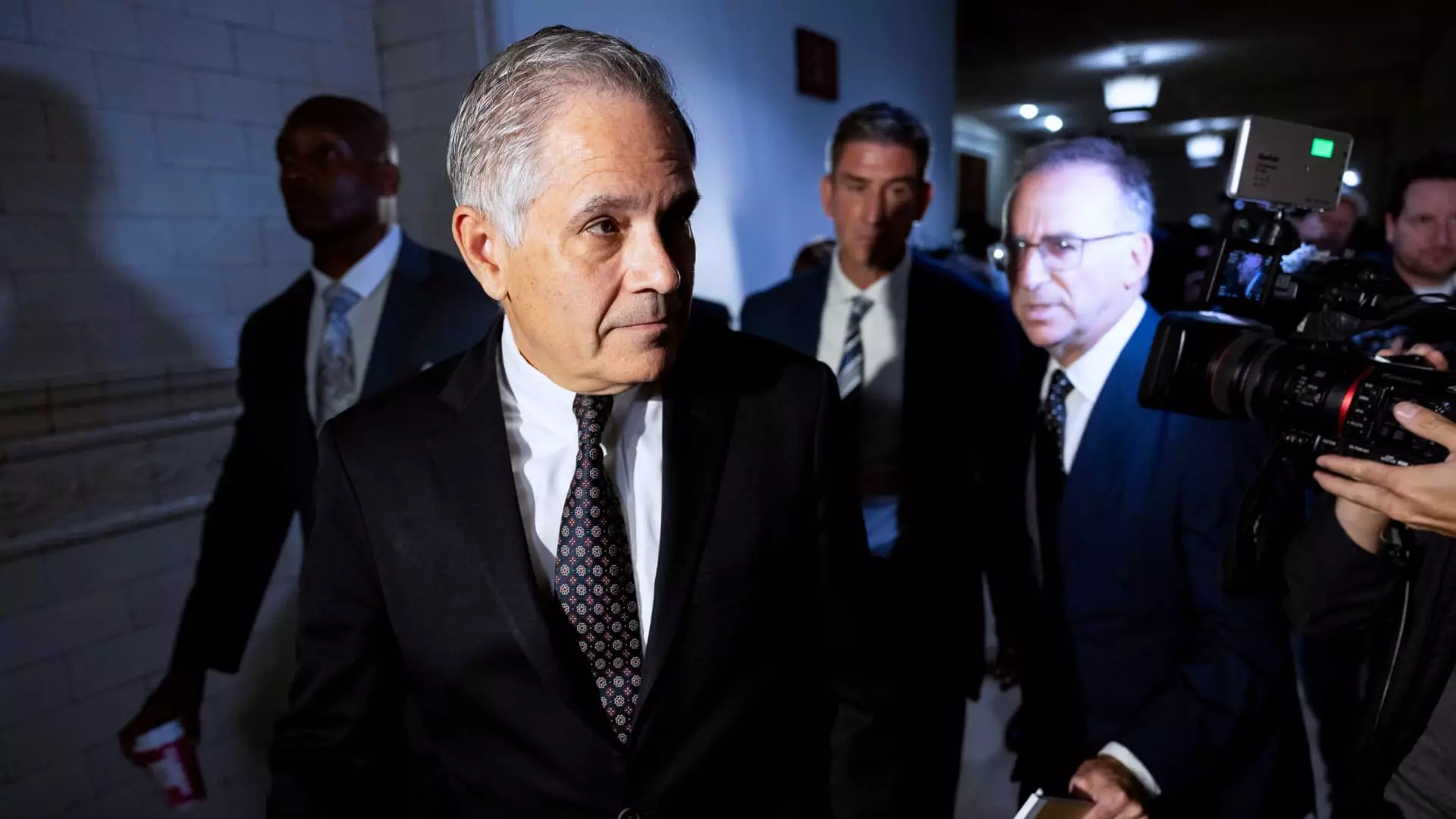In a high-stakes court hearing this week, Philadelphia District Attorney Larry Krasner took center stage, boldly framing a controversial cash giveaway associated with Tesla CEO Elon Musk’s political action committee, America PAC, as an illegitimate lottery. This provocative claim underscores not only the intricate relationship between politics and commerce but also raises critical questions about the ethical parameters surrounding political fundraising, particularly in an election year.
Krasner’s Assertive Claims Against Musk
During the courtroom proceedings, Krasner articulated that he believed Musk and America PAC were fully aware of the legality issues surrounding their actions. The statement, “They know what they’re doing is illegal,” reflects the DA’s firm stand against practices he deems exploitative. Krasner characterized the $1 million giveaway targeted at voters in Pennsylvania and other key states as a “scam,” which has reportedly doled out a staggering total of $16 million.
Krasner’s assertion that the giveaway contravenes both consumer protection and lottery laws touches upon significant legal precedents and interpretations. His further claim that criminal activities cannot be cloaked by First Amendment rights suggests that he sees this case as not just about election law but about the integrity of democracy itself. With a history of legal practice spanning almost four decades, Krasner’s experience adds weight to his accusations that such promotional tactics can undermine public trust prior to elections.
The Counterargument from America PAC
In stark contrast to Krasner’s claims, Chris Gober, the former treasurer of America PAC, defended the initiative in a passionate rebuttal. He contended that the giveaway does not constitute an illegal lottery since it lacks the traditional prize mechanism; instead, he posited that participants are entering a contractual agreement to act as spokespeople for the PAC. This interpretation creates a fascinating twist on conventional lottery definitions and speaks to the evolving landscape of political fundraisers and engagements.
Gober’s assertion, claiming that the term “randomly” is interchangeable with “by chance,” raises eyebrows, especially against the backdrop of allegations that the recipient selection process is anything but arbitrary. This divergence in understanding points to the potential for misinterpretation and manipulation in political fundraising efforts, casting a shadow on the integrity of such campaigns.
The court hearing is emblematic of the broader anxieties surrounding the intertwining of politics and large-scale monetary incentives, particularly as they relate to influencing voter behavior. With the 2024 presidential election looming, the implications of this case could ripple through the electoral landscape. The DA’s ideology appears to resonate with concerns shared by many about the influence of wealth in political processes. Krasner’s declaration that his filing was not influenced by his political affiliations raises questions about whether institutions can truly remain impartial when entangled in political controversies.
Moreover, public figures like Taylor Swift, who support candidates like Kamala Harris, only add layers of complexity to the situation. Krasner indicated that he would have pursued legal action had a celebrity offering a similar incentive aligned with a different political agenda. This reinforces the idea that the ethical scales must be balanced meticulously, regardless of the party affiliation of those involved.
As the situation unfolds, this legal clash extends beyond the courtroom and reflects broader societal tensions regarding voter engagement, ethical campaigning, and the intersection of monumental wealth in politics. The potential ramifications reach well into the realm of consumer law and civic responsibility, prompting discussions about the role of financial incentives in electoral processes.
Krasner’s endeavor to halt the giveaway reflects a commitment to uphold legal standards governing political interactions, while Gober’s defense illustrates the complexities of modern political strategy. This ongoing battle not only highlights the key features of electoral law but also serves as a crucial case study on the ethical and legal boundaries of political campaigning in contemporary America. As the court deliberates, this case stands to determine how far financial motivations can reach into the democratic process without breaching the law.


Leave a Reply